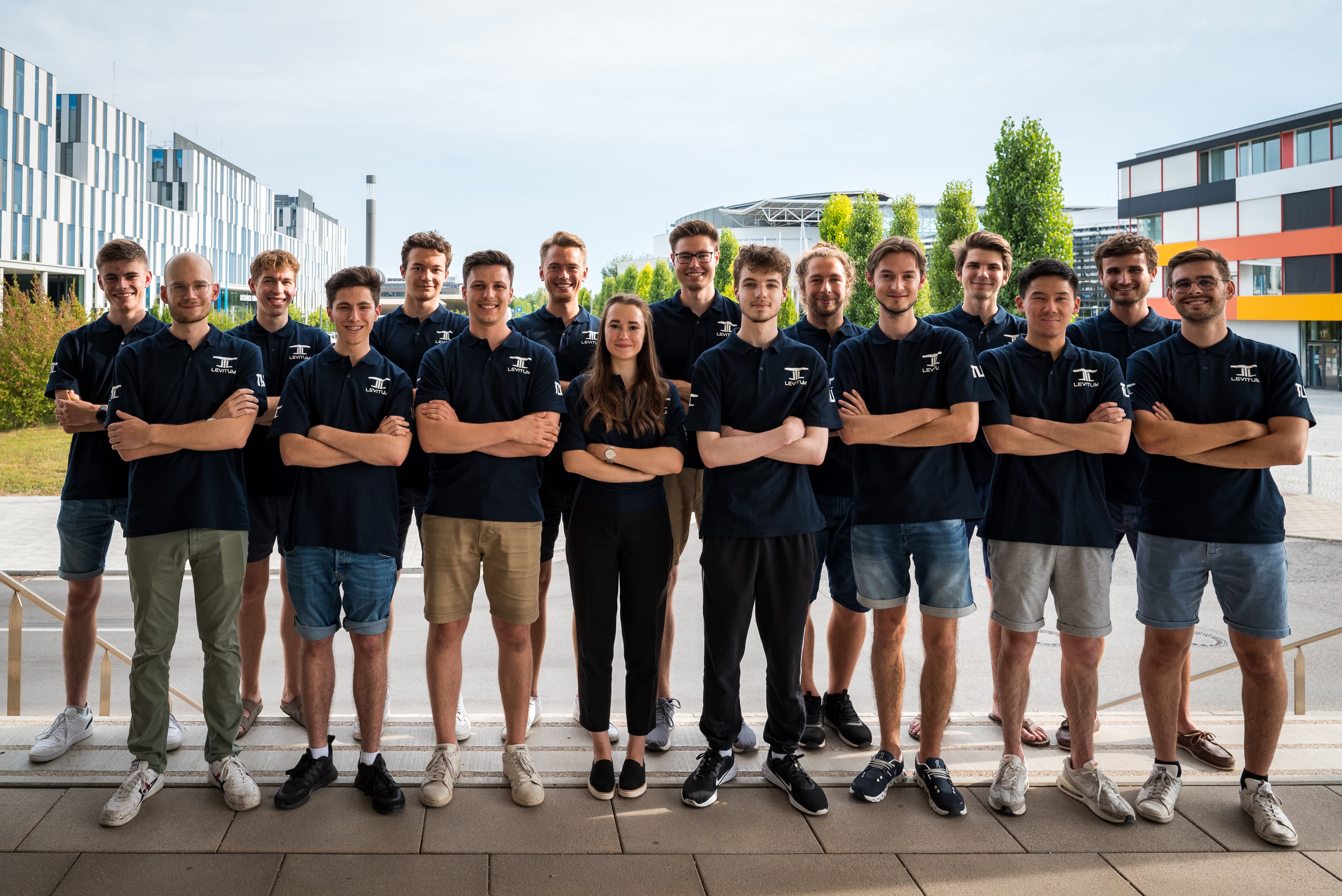Success stories are the elixir of life!
Our Success Story from the MakerSpace is that of WARR ROCKETRY
Warr Rocketry is a student team that emerged from TUM in 1962 and that we have had in our workshop since 2018. Already in 2019, the production of the next components for their rocket started in MakerSpace. Several years, several prototypes, quite a bit of experience and an enormous team spirit later, the now more than 150-member team is in the process of testing their latest rocket. Especially for this purpose, we are currently supporting the team with a permanent space to build their more than 6 meter long WARR rocket in our workshop in Garching, extending the opening hours for the team and whatever else the screwdriver’s heart desires.
The special thing:
Warr Rocketry have built two research rockets, the EX-3 and EX-4. The EX-3 is the largest rocket in their 60+ year history: it is a hybrid rocket (solid propellant and liquid oxidizer) and plans to set a new world record for student cryogenic rockets with a flight altitude of over 35km. Speeds of up to Mach 3 and accelerations of up to 13g will be achieved.
To achieve this, the self-developed engine delivers over one ton of thrust. The EX-4 is their latest rocket: It represents a technology demonstrator of the most difficult and potent way to propel a rocket: Purely powered by liquid propellants, in our case ethanol and LOX. No professional orbital rocket today can do without it, but due to the enormous complexity there are only a handful of student teams in Europe that have ever built a working bioliquid engine, let alone a bioliquid rocket.
Germany-wide, Warr Rocketry are the only ones; other teams are still in the early planning stages at most. In addition, EX-4 uses very potent and innovative technologies, such as a regeneratively cooled combustion chamber 3D-printed from Inconel 718 and an extremely light CFK outer skin that carries all structural loads (roughly halving the weight of a conventional aluminum structure). In total, it achieves a thrust of 3.5 kN. As a research rocket, it will
rocket will have a scientific payload on board for its first launch at the European Rocketry Challenge in Portugal this year. scientific payload on board, which will help Alzheimer’s research in weightlessness. in zero gravity. In general, as one of the few student rockets in the world, both rockets use use liquid oxygen (LOX) as an oxidizer, which is the same oxidizer used in most professional liquid professional orbital liquid rockets. Here we draw on over a decade of experience with this cryogenic propellant. In addition, both rockets have a completely
designed, built and tested by ourselves.
Motivation to use the Makerspace:
As a team working in the highest student categories, the so-called SRAD categories (Student Research and Development), we make little use of purchased components and develop and manufacture develop and manufacture most of the components ourselves. The production of complex aerospace components requires requires considerable expertise and a potent machine pool. For the latter, the Makerspace comes on the scene as a professionally equipped workshop.
and workshop space available there far exceeds the capacity of our own workshop and thus plays a central and thus plays a central role in the successful production of our components. Thus have access to important production methods that would otherwise exceed our budget by far.
otherwise. It is also an important space for assembling our rockets: With lengths of 6 m per rocket, this is an activity that requires considerable space, which is generously provided to us by the Makerspace generously makes available to us.
Recommend to students:
I can recommend that any student who wants to use the Makerspace take advantage of the offerings to make full use of it: The amount of machines that are available is great and worth to be used to its full extent. One should not be afraid to learn how to use new machines. to learn how to operate new machines. Equipment such as CNC routers, lathes, 3D printers, water jet cutters and and welding equipment may have never been used before, but they can add so much value to a project that add so much value to projects that learning how to use them is invaluable. It’s worth the time into learning and practicing.
We are happy to have such an ambitious and successful team in our area. You would like to work at MakerSpace as well?
[x] Stipendien















